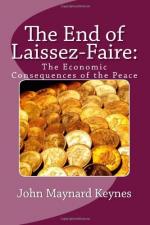|
This section contains 870 words (approx. 3 pages at 300 words per page) |

|
Laissez Faire Economics
Summary: From the year 1865 to 1900 the United States government violated the principles of laissez faire, an economic doctrine that opposes governmental regulation of or interference in commerce beyond the minimum necessary for a free-enterprise system to operate according to its own economic laws.
From the year 1865 to 1900 the United States government violated the principles of laissez faire, an economic doctrine that opposes governmental regulation of or interference in commerce beyond the minimum necessary for a free-enterprise system to operate according to its own economic laws. The United States government took this position of noninterference, however, evident within the policies regarding railroad land grants, control of interstate commerce, and antitrust activities we see clear violation and interruption of the ideology of laissez faire.
During the late 19th century many Americans supported the adoption of a laissez faire system to allow for both the protection of property rights and maintenance of social order, however, Americans believed the government should not impede with expansion or commerce. As stated by Amasa Walker, an American economist, "Economically, it will ever remain true, that the government is best which governs least. The wants of a people are...
|
This section contains 870 words (approx. 3 pages at 300 words per page) |

|


